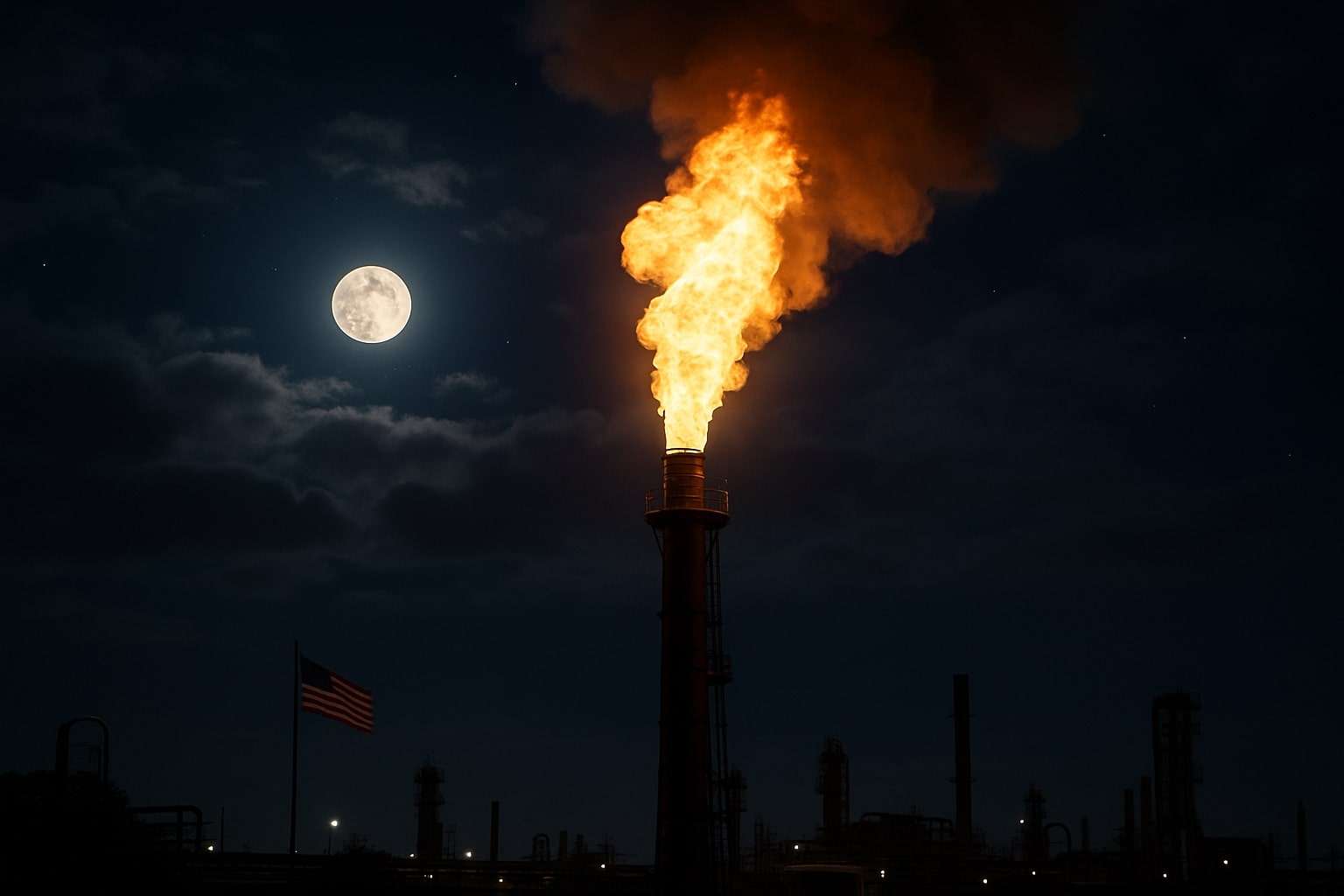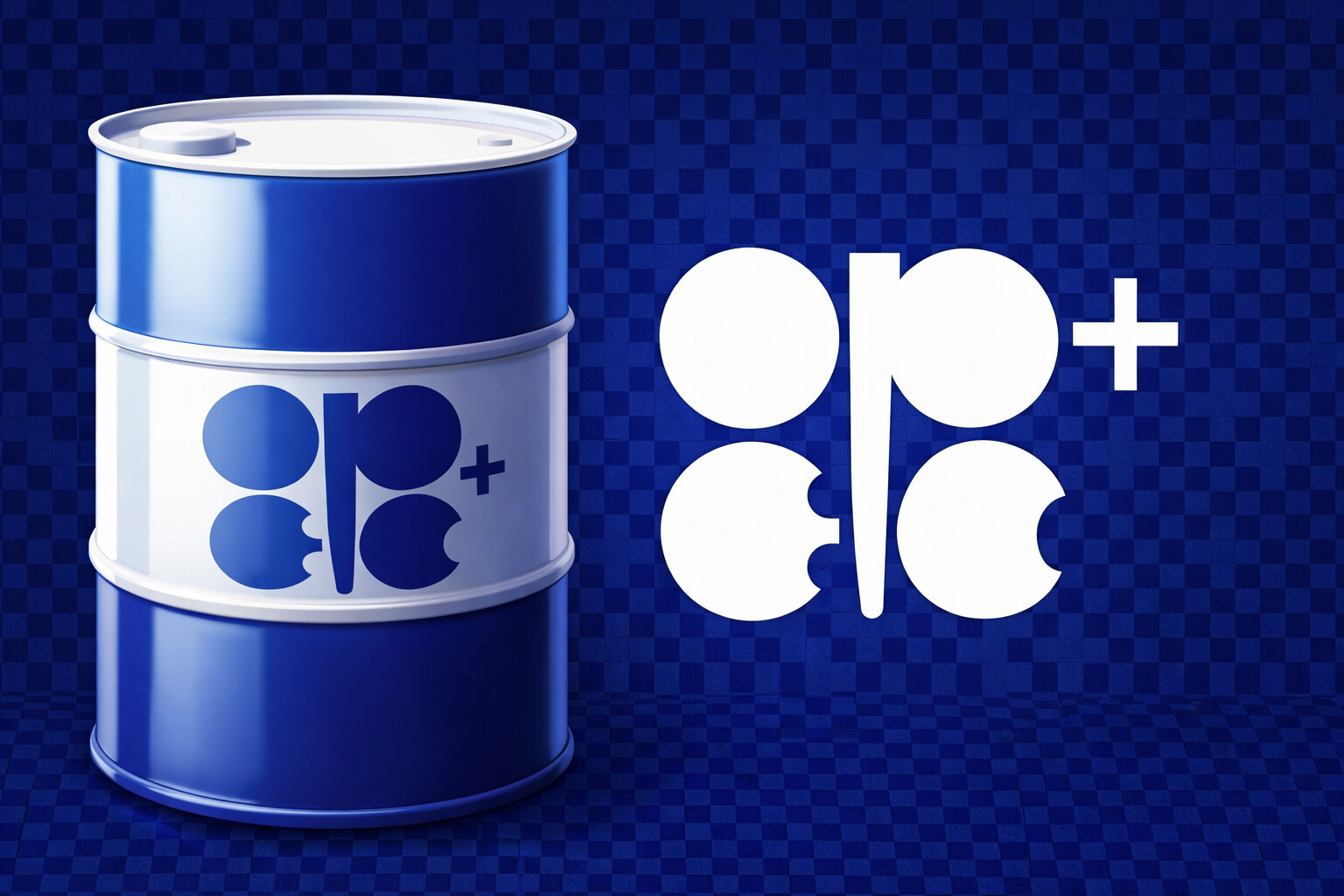
Natural Gas Price (NG=F) Slides to $2.83 as Mild Weather, Oversupply, and Negative Cash Hubs Pressure Prices
Futures lost 2.4% on Friday, extending a three-week decline, even as November contracts touched $3.21. With Henry Hub at $2.83, Turkey pricing $344.80 per 1,000 cubic meters, and leveraged ETFs BOIL and KOLD diverging, the market sits in a fragile balance ahead of winter demand | That's TradingNEWS
Natural Gas Futures (NG=F) Slip to $2.83 as Mild Weather Caps Early Heating Demand
U.S. natural gas futures finished the week under pressure, with October delivery contracts on the New York Mercantile Exchange settling at $2.835 per MMBtu, a decline of 6.9 cents or 2.4% on Friday. The move erased part of the midweek rally that briefly lifted November contracts above $3.20 per MMBtu, their highest in two months. For September as a whole, the front-month contract lost nearly 8% after consecutive weekly declines of 2% and 4%. The weakness reflects warmer-than-expected forecasts that extend through October 11, delaying the seasonal demand pickup for natural gas used in heating. Futures markets remain stuck in a trading band between $2.83 and $3.21, awaiting a catalyst from weather or storage data to break directionally.
Turkey’s Spot Market Pegs Natural Gas at ₺14,340.43 per 1,000 Cubic Meters, Equivalent to $344.80
The Turkish Energy Exchange Istanbul (EXIST) reported that 1,000 cubic meters of natural gas was priced at ₺14,340.43 on September 27, translating to roughly $344.80 at the exchange rate of ₺41.58 per U.S. dollar. Trade volumes fell 10.4% day-on-day to ₺8.76 million, equating to about 612,000 cubic meters transacted. While the spot benchmark is little changed from ₺14,334.35 on September 26, it remains below the September 23 high of ₺14,432.87. Türkiye imported about 100.69 million cubic meters of pipeline gas that same day, underscoring the country’s reliance on steady inbound supply even as local market turnover cools.
Negative Cash Prices at Waha and AECO Reflect Ongoing Infrastructure Strains
Regional price dislocations in North America are intensifying. At the Waha Hub in Texas, cash gas values fell into negative territory for the 12th time this year, while at Alberta’s AECO Hub, average prices turned negative for the first time in 2025 and set fresh record lows across four consecutive sessions. Pipeline constraints, maintenance, and limited takeaway capacity have left producers with localized oversupply despite robust national demand. These negative prints stand in stark contrast to Henry Hub’s $2.83 per MMBtu benchmark, highlighting how infrastructure bottlenecks can distort pricing and reduce realized revenue for producers.
Production and Storage Trends Point to Comfortable Supply Ahead of Winter
U.S. natural gas production in the Lower 48 states averaged 107.4 billion cubic feet per day in September, easing slightly from the record 108.3 bcfd in August. On Friday, daily output dropped to 106.3 bcfd, an 11-week low, but still near historic highs. This year’s elevated output allowed utilities to inject more gas into storage than usual, leaving inventories 6% above the five-year seasonal average heading into October. With stocks already elevated, futures markets see limited urgency to bid up prices unless demand ramps sharply.
Hurricane Humberto Strengthens but Avoids Gulf Energy Assets
The U.S. National Hurricane Center noted that Hurricane Humberto is expected to strengthen into a major hurricane as it tracks between Puerto Rico and Bermuda. Meanwhile, a tropical wave near the Bahamas carried a 90% probability of cyclone development over the next seven days. Neither system is projected to enter the Gulf of Mexico, sparing LNG terminals and offshore production sites from direct hits. Historically, storms can pressure natural gas prices by disrupting demand through power outages and curbing LNG exports, outweighing the bullish supply-side risks from production cuts. Traders are watching closely, but for now the storms appear more bearish than bullish for pricing momentum.
Read More
-
Sterling Infrastructure Price Forecast: From $351 Today Toward a $400 STRL Stock Target
25.01.2026 · TradingNEWS ArchiveStocks
-
XRP Price Forecast - XRP-USD Near $1.89: $1.85 Breakdown Risk Versus A $2.40–$3.00 Recovery Path
25.01.2026 · TradingNEWS ArchiveCrypto
-
Oil Price Forecast - Oil Surge on Iran Tensions, But WTI (CL=F) and Brent (BZ=F) Remain Trapped in a Supply Glut
25.01.2026 · TradingNEWS ArchiveCommodities
-
Stock Market Today: S&P 500 6,915, Nasdaq 23,501 And Dow 49,098 Face Fed, Tariffs And Tesla Test
25.01.2026 · TradingNEWS ArchiveMarkets
-
GBP/USD Price Forecast - Pound Tests 1.35 Ceiling as UK Data Beat and Fed Cut Odds Undermine the Dollar
25.01.2026 · TradingNEWS ArchiveForex
Retail Energy Prices in Iowa Show Divergence Between Fuels and NatGas
In Iowa, the average price for regular unleaded gasoline slipped to $2.91 per gallon, down 6 cents from the previous week and 13 cents lower year-on-year. Diesel fell 1 cent to $3.50 per gallon, still under the national average of $3.69. In contrast, natural gas at Henry Hub ticked higher by 5 cents to $3.16 per MMBtu, diverging from falling liquid fuels. Crude oil also gained modestly, with West Texas Intermediate settling at $64.73 per barrel and Brent crude closing at $68.95 per barrel, though both benchmarks remain well below last year’s levels.
ETF Vehicles BOIL, KOLD, and UNG Track Price Swings Around Key Technical Levels
Natural gas ETFs reflected the volatile range-bound trade. The ProShares Ultra Bloomberg Natural Gas ETF (BOIL) closed at $27.31, a 1.83% decline, while the ProShares UltraShort Bloomberg Natural Gas ETF (KOLD) rose 1.81% to $38.23. The United States Natural Gas Fund (UNG) slipped 0.95% to $12.47. Analysts highlight technical support at $2.85 per MMBtu and resistance between $4.50 and $5.00, with a stretch target of $6.00 if winter weather drives stronger demand. BOIL and KOLD remain popular for tactical trades, while UNG offers broader exposure without leverage reset risks.
Verdict on Natural Gas (NG=F): Hold Near $2.83 Until Winter Weather Provides Direction
Natural gas remains locked between $2.83 and $3.21 per MMBtu, with ample storage, robust production, and negative cash hub prices weighing on sentiment. Unless colder weather or geopolitical disruptions accelerate demand, prices may struggle to break higher. However, with upside potential toward $4.50 to $6.00 into winter if conditions tighten, the commodity is best viewed as a Hold, with tactical opportunities near support levels and strong upside optionality tied to seasonal catalysts.



















